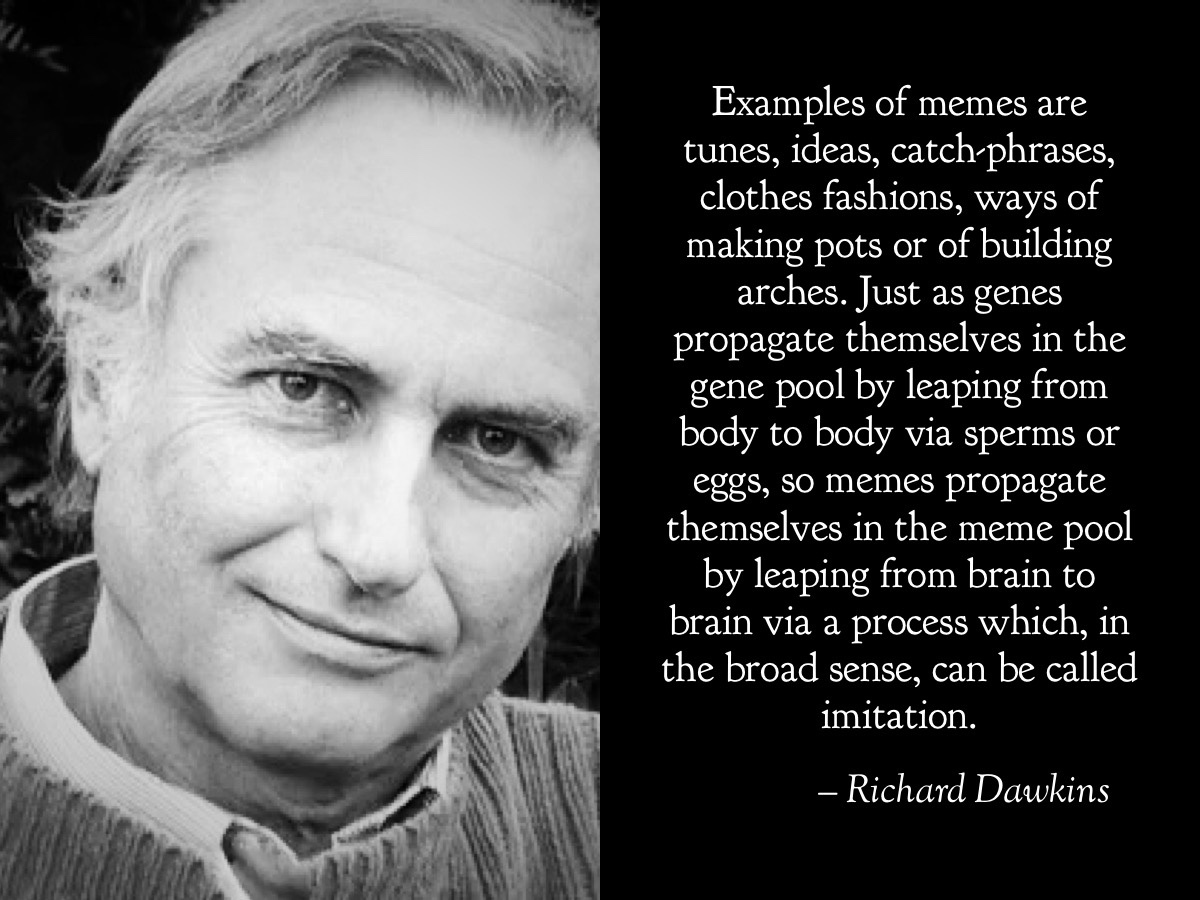It's a bit of yes and no. Dawkins' definition of memes actually pertains to the spread of ideas withing the global consciousness. He attached a 'genetic' model to it in order to rate ideas by order of their succes. For instance Aristoteles' ideas are memetically succesfull as we're still circulating and teaching them nowadays, whilst his neighbour is unheard of and lost to time.
The concurrent rise of internet usage made that simple ideas in image form went viral and people gatting to know about Dawkins' theory got their introduction to the spread and sucessfulness of ideas via a reasonably modern medium. The virality of ideas and the coupling of memetic theory made that the idea 'meme' itself was misattributed. More like a viral strain the 'meme' became shorthand for the image and text based posts that happened to be popular at the time.
So in that reading the meme became the idea, instead of the evlolutionary vector by which ideas propagate. The funny thing is that with Lemmy a whole subset of older internet users that grew up within the context of this birth of the 'Image and text memes' time of the internet are nostalgic to their older meme formats. Which prove that the spread of ideas over time has made it that newer ideas push out the older ones, hence proving the evolutionary nature of 'memes'.
In a way ideas are always memes (in Dawkins' definition) but as a particular form of communication the 'memes' have evolved and will keep evolving. But what a person would consider to be a 'meme' will tell a lot about when this person was growing up on the internet.
